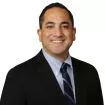Seyfarth Synopsis: The Fourth Circuit found that the medical necessity of a given service constitutes a material element of representations regarding submissions for payment, potentially providing payors with another legal authority to fight health care fraud.
The Fourth Circuit recently affirmed two criminal convictions for health care fraud under 18 U.S.C. §§ 1347 and 1349, finding that a misrepresentation as to the medical necessity of the service rendered was material for purposes of violating the statute. United States v. Palin, — F.3d —-, No. 16-4522, 2017 WL 4871381 (4th Cir. Oct. 30, 2017).
The two defendants operated an addiction medicine clinic and laboratory, which frequently processed urine tests. There were two kinds of urine tests, a simpler, less-expensive test and a more complicated, more expensive one. When submitting lab orders, doctors would usually not specify which test they intended. Generally, where patients were uninsured, the defendants would use the cheaper test, but where patients were insured, the defendants would use the more expensive test.
The district court convicted the defendants, finding that by this course of conduct, defendants "knowingly and willfully executed a scheme to defraud health care benefit programs" in violation of the health care fraud statute.
Defendants appealed, asserting that the district court erred in its analysis of materiality of the misrepresentation. Defendants asserted that there was no material misrepresentation, because they did not misrepresent to payors either the type of test they billed for or the frequency of the tests. See id. at *2. Defendants impliedly argued that because they billed for services actually rendered, and told the payors which services were rendered, no fraud occurred.
The Fourth Circuit rejected defendants' arguments, finding that "materiality looks to the effect on the likely or actual behavior of the recipient of the alleged misrepresentation" Id. at *3 (citations omitted).
The Court found that "the misrepresentations here were material: insurers would not have paid for the sophisticated tests had they known those tests were unnecessary. . . . [T]he insurers here did not reimburse claims despite knowing [defendants] sought payment for tests that [defendants] knew were not medically necessary. . . . No evidence even suggests that medical necessity was anything less than a critical prerequisite to payment." Id. (emphasis added). The Fourth Circuit proceeded to reject defendants' other arguments against their convictions.
Palin represents an important arrow in the quiver for payors alleging that billing payors for medically unnecessary services constitutes health care fraud. Although this case involved a criminal conviction for fraudulently billing private insurers, the facts potentially apply equally to civil actions and disputes involving other payors, including ERISA Plans. Stay tuned to this blog for further legal developments in health care fraud and provider billing litigation.
The content of this article is intended to provide a general guide to the subject matter. Specialist advice should be sought about your specific circumstances.



